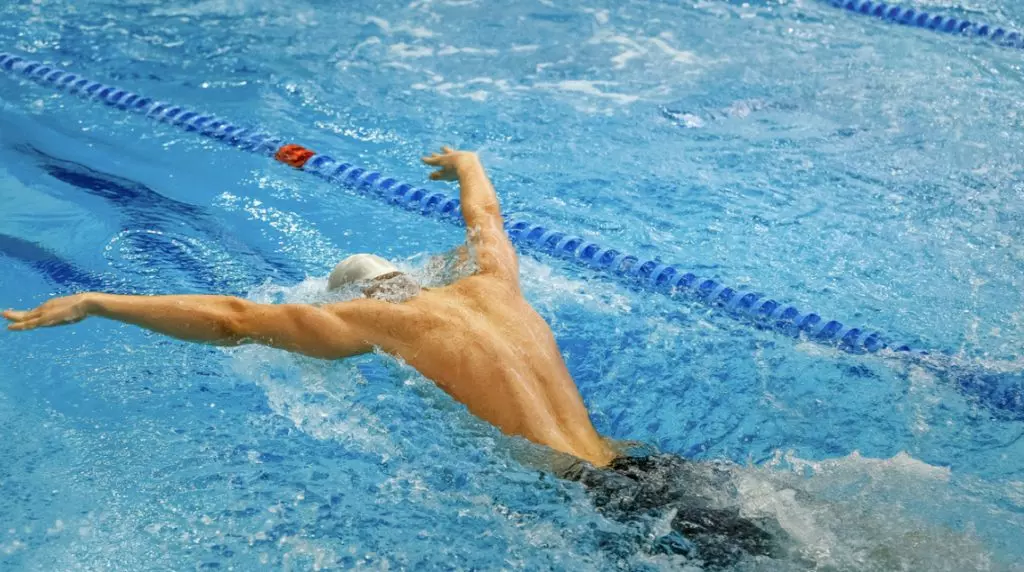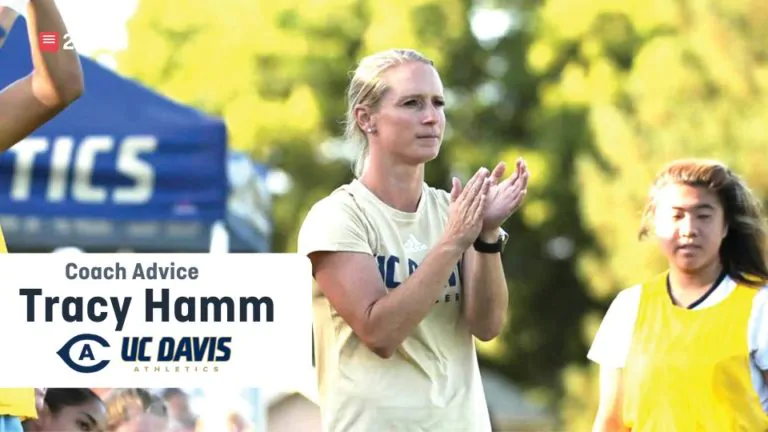Following these seven tips will put you on the right track to becoming a better swimmer. Having some sense of how to improve will give you direction, and it will give you something to strive for. I am a swimmer for the University of Boston and this are some tips that I live by.
#1: Wear a Cap to Practice
If there is one thing that should stay consistent when you’re racing in a meet, it’s that you should always wear a cap when you race. This helps to prevent the drag that your hair ultimately causes, this can be a huge time saver. It is also essential that you wear one during your practices; this isn’t much of a problem on the girl’s side, but many male swimmers choose not to wear a cap to practice. The drag of your hair will inevitably take you out of your race element, and can lead to poorer practice performances. Keeping a cap on while you practice will help to simulate the feeling of a race while also helping you to get used to the feeling of wearing a cap during a race.
Pro Tip: If you’re bald, this doesn’t apply to you. No hair equals no drag.
#2: Wear a Drag Suit Over Your Regular Suit During Practices
Many of you may be thinking that this contradicts tip #1; however, this isn’t the case. There’s a difference between good drag and bad drag, and a drag suit falls into the category of good. Having that extra drag behind you may make you swim slower during practice, but if you wear it during practices, you’ll start to notice that you might feel stronger. This is because you are pulling extra weight/drag. Once you get to a swim meet, take the drag suit off, and you’ll notice that you’re moving a lot quicker and getting a much better feel for the water. When you feel good, you race better, so having a drag suit on can lead to a better performance – but only if you’re willing to commit to wearing the drag suit during all of your practices. .
#3: Take Time After Practice to Work on Technique
If you can, speak with your coach one-on-one about what parts of your swimming technique that you need to work on. A good coach will not mind you asking him for help, he should take the time for you. As an example, I’ve been working with my coach on my backstroke start this summer to improve my technique and speed. After a few weeks of extra work, I already feel as though my start is much better than it was a month ago. Do this with any area of your stroke to obtain some long-term benefits. Consistency is key.
#4: Work Your Underwater Kicks
The one thing that you should notice when watching the best swimmers is that they stay underwater off their walls longer than most swimmers. Especially at the collegiate level, underwater kicking is extremely important. kicking can make up almost half of your race, and the efficiency at which you do them can make or break your swim. This is why it’s important to work on kicking during practice. When going off the walls, make a goal for yourself to do x number of kicks for that week. Then you should bump that number up every week or two. Not only will your kicking get faster and more efficient, but your leg strength will increase as well. You’ll also be able to stay underwater for much longer, as consistent underwater work will build up the strength in your lungs.
#5: Make All Your Turns Fast, Even During Practice
This is another critical component when it comes to swimming at the collegiate level. Since all of your races will be in a 25-yard pool, you’ll be doing flip turns and open turns quite often. Take advantage of that time by making all of your turns fast and efficient. This will help with muscle memory and ensure that your turns are as efficient as possible when it comes time to get in and race. You might think that doing a turn slowly or inefficiently may not matter that much in a race, but that adds on a lot of time that could be detrimental in a race. So be sure to work your turns, because it could be the difference between first and second place.
#6: Know Your Times
My club coach in high school had a saying he would use often, “If you don’t know, you don’t care.” This applies to knowing your times in practice. When you finish a set in practice, make sure you look up at the pace clock and get your time. This is especially important during sets where there are many racing components. Make a game out of it; look at your time after you finish, and then try to beat that time when you push off again. It will keep your brain active during the set and ensure that you stay focused. This also looks good to coaches; if you know your times in practice, it will show them that you are dedicated to improving yourself and getting faster.
#7: Don’t Pull on the Lane Line
We’ve all been there before, you’re doing a backstroke set, and you’re tired, and you might think to pull on the lane lines would make the set a lot easier. This will NOT make the set easier, you will get nothing out of this. Fight the urge to pull on the lane line during backstroke practice, this will pay off in the long run. If the coach sees you doing this he will view you as being lazy. And what is worse than a coach thinking that you are lazy? Put in the work and be a champion.
* Originally published on August 23, 2018, by Michael Choate







